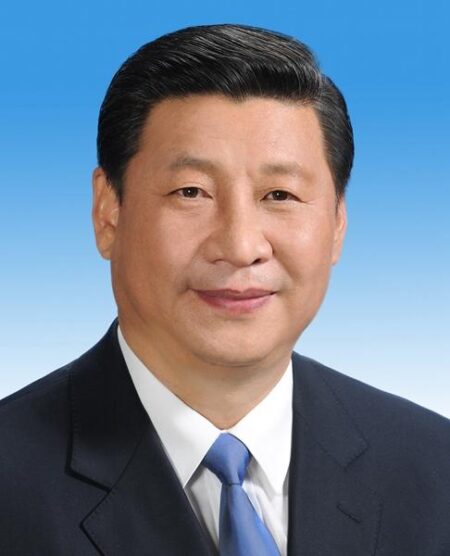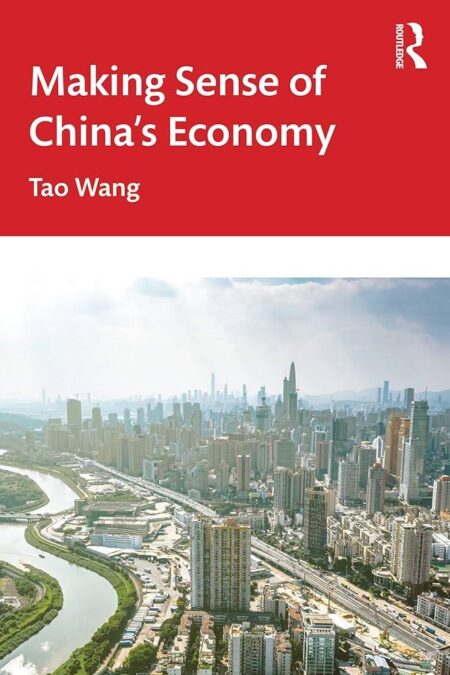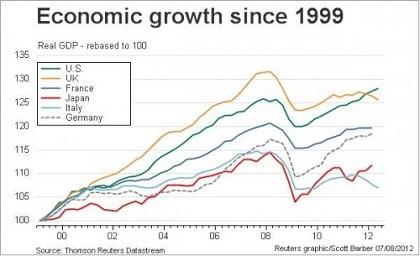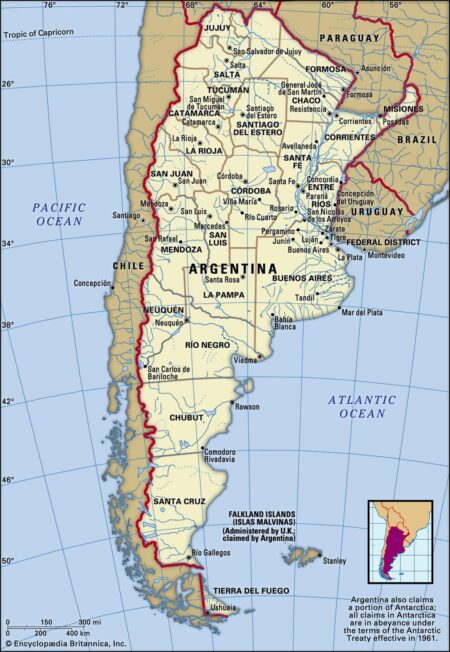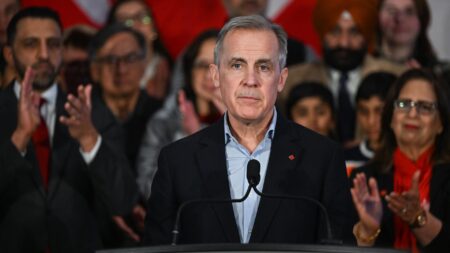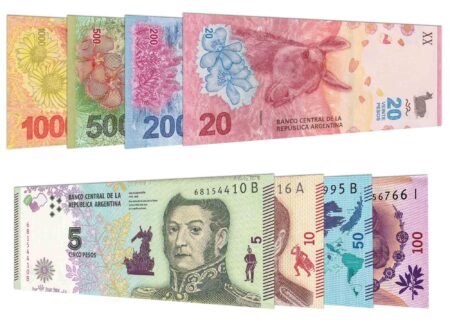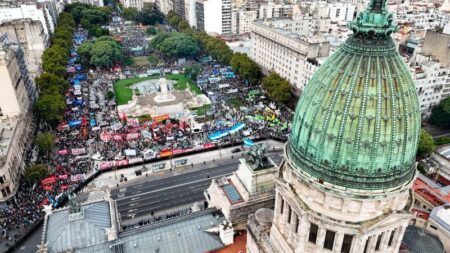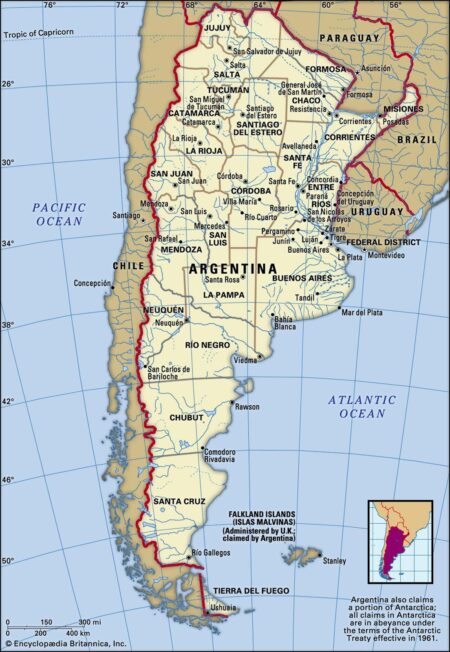Chinese President Xi Jinping is signaling a bold new strategy to put an end to the prolonged deflationary price wars, with the goal of stabilizing markets and sparking robust economic growth, Yahoo Finance reports. This move has the potential to reshape China’s competitive landscape in a profound way
Browsing: economic reform
Argentina’s inflation rate has impressively dropped to 1.5% under Javier Milei’s dynamic leadership, signaling a remarkable economic turnaround. Bold reforms and strict fiscal discipline have been crucial in restoring stability to the nation’s economy
Bruegel’s latest report uncovers ten urgent challenges facing China’s economy-from slowing growth and rising debt risks to dramatic demographic shifts-highlighting major hurdles that threaten the nation’s economic stability and its role on the global stage
The IMF has applauded Argentina’s recent reform efforts, calling them a promising sign as the much-anticipated visit at the end of June approaches. These bold moves showcase the country’s strong commitment to meeting the vital economic targets set out in the bailout agreement
Argentina’s black market for dollars is witnessing a notable decline as the government takes steps to relax stringent currency controls. This strategic shift is designed to bring stability to the economy, yet hurdles remain. With inflation and economic uncertainty still looming large, public confidence continues to waver.
As global tensions rise, Germany stands at a crossroads, grappling with pivotal decisions that will shape its economic destiny. Yet, leading economists caution that Friedrich Merz’s plans for rearmament and austerity might fall short in tackling the deeper issues of sustainable growth.
In a bold and unexpected turn of events, Argentine President Javier Milei has taken the dramatic step of dissolving the investigative unit that was delving into a contentious crypto scandal. This shocking decision sparks serious concerns about accountability and transparency in Argentina’s rapidly evolving cryptocurrency scene.
Argentina has triumphantly secured a staggering $42 billion in funding from the International Monetary Fund and various other sources, signaling a bold new chapter in its economic policy. By lifting long-standing currency controls, the country is taking decisive steps to stabilize its economy amidst persistent financial challenges. This pivotal move could pave the way for renewed growth and prosperity.
In Javier Milei’s Argentina, hailed as an ‘economic miracle,’ the gap between the haves and have-nots is growing ever wider. While a select few revel in skyrocketing profits and booming investments, countless citizens are left struggling with escalating costs and stagnant wages. This stark contrast underscores the uneven effects of his policies on everyday life.
In a significant policy shift, President Javier Milei has lifted tight currency and capital controls in Argentina, aiming to stimulate economic growth. This move is expected to increase market confidence but may also raise concerns about inflation and financial stability.
In a bold and transformative policy shift, Argentina has officially scrapped export duties on thousands of manufactured goods! This exciting move is set to enhance the country’s competitiveness in global markets, breathing new life into the economy and providing a much-needed boost for local manufacturers.
In a defining moment for Canadian economic leadership, Mark Carney steps into the spotlight with the ambitious mission of transforming the nation’s economy. His appointment marks a significant turning point as Canada embarks on a journey through intricate fiscal landscapes, all while striving for sustainable growth.
Germany must take a fresh look at its competitiveness strategies as global tensions rise. With the geopolitical landscape evolving rapidly, there’s an urgent call for innovative policies and robust economic frameworks to successfully navigate this increasingly challenging world
In his pursuit to restore economic stability, Javier Milei’s bold policies may be key to revitalizing Argentina’s struggling economy. As the country grapples with inflation and fiscal challenges, his vision for a “normal” financial landscape warrants serious consideration.
Argentina’s recent overhaul of its foreign exchange regime has sparked widespread speculation about the future of the peso. As the government aims to stabilize the currency amid soaring inflation, analysts are closely watching how these changes influence economic recovery.
Thousands of Argentinians took to the streets in a general strike to protest President Javier Milei’s ‘chainsaw’ austerity measures. Demonstrators demanded an end to cuts that they claim threaten social welfare and deepen economic inequality in the nation.
Argentina has secured a $20 billion deal with the International Monetary Fund (IMF) to support President Javier Milei’s ambitious economic reforms. The agreement aims to stabilize the nation’s economy amid ongoing inflation and fiscal challenges.
Javier Milei, Argentina’s newly elected president, is facing criticism for his efforts to reshape the nation’s historical narrative in a bid to attract foreign investment. Analysts warn that such moves could undermine Argentina’s cultural identity and heritage.
Australian Prime Minister Anthony Albanese has indicated that a federal election is “imminent,” prompting the government to expedite the passage of a critical tax cuts bill. The move aims to solidify support ahead of the upcoming vote, highlighting economic priorities.
Beijing’s long-anticipated decree is poised to bolster China’s private sector, offering critical support for economic recovery. Analysts suggest that this policy shift may restore investor confidence and stimulate growth in an increasingly competitive landscape.

